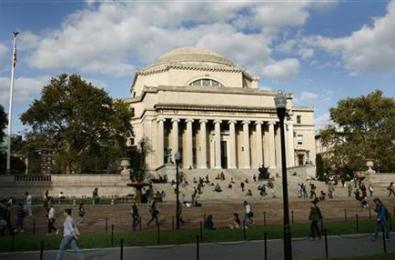Sudanese activists in US call for peaceful political transition
December 16, 2013 (WASHINGTON) – Sudanese scholars and rights activists in the United States called for a peaceful and inclusive political transition in their country saying it is the only way to avert the disintegration of Sudan.

The discussions tackled the current humanitarian, human rights and political situations in Sudan. “The aim of the meeting was to strategize collective action to advance freedom, justice, peace and democracy in Sudan.
Ahmed Hussein Adam the ISHR’s Visiting Scholar and Co-chair of the Two Sudans Project at Columbia University told Sudan Tribune that the Dialogue “was an endeavour to respond to the Sudan’s National crisis which is worsening by day, from the perspective of the peoples from the marginalized regions of Sudan”.
He also underscored the imperative of unity of purpose among “the Diaspora of the marginalised regions of Sudan” and their collective actions to alleviate the suffering of the civilian populations in the conflict regions and all over Sudan.
The participants regrouped in two panels discussed the humanitarian situation and the prospects for change and political transition in the country.
Regarding the political situation, the speakers from Darfur and the Two Areas highlighted the core elements of the Sudanese crisis, including the failure in settling and reconciling the issue of identity, state and religion and inclusive governance.
The panellists underscored that the only way to avert the disintegration of the remaining Sudan is to realize a new peaceful, inclusive and democratic transition. They further stated bluntly that Bashir’s regime is a part of the problem; therefore, democratic change cannot be realised while Bashir is in power.
They also underscored that Sudan needs a political system of inclusive citizenship and inclusive governance. The speakers urged the Sudanese actors, including the Sudanese Revolutionary Front (SRF), opposition parties, youth groups and women groups to work towards an inclusive and viable alternative to Bashir’s regime.
On the humanitarian issues, the speakers also spoke about the dire humanitarian and human rights situations in the conflict regions and all over Sudan and urged for a robust action in order to provide a humanitarian assistance and protect the civilians from the ground and air attacks of the Sudanese armed forces and militias.
In his remarks, David L. Phillips, the Director of the Program on Peace-building and Rights, expressed his deep concern about human rights, humanitarian and political situations in Sudan. He further stated that there was no doubt what so-ever that the situations in Darfur, Nuba Mountains and Blue Nile constitute genocide.
Phillips who is also the author of a book titled” liberating Kosovo: Coercive Diplomacy and U.S Intervention”, further outlined the criterion of humanitarian intervention and what constitutes a successful humanitarian intervention. Based on his first-hand experience during the events that led to the liberation and independence of Kosovo, he also highlighted some lessons learned and lessons unlearned about ‘humanitarian intervention’. “a reliable be and legitimate national actor on the ground is vital for any successful intervention”, he underscored.
The director of the office of US special envoy to Sudan and South Sudan , Lucy Tamlyn, provided the participants with a brief on the core objectives and guidance of the United States’ policy on Sudan and South Sudan, including respect for human rights, urgent need for humanitarian access to conflict areas as well as the importance of inclusive and representative governance in Sudan and South Sudan.
She further reiterated the commitment of the United States to the goal of two viable states at peace internally, with one another and with their neighbours. Tamlyn also underscored the importance of holistic approach in resolving Sudanese conflict.
Sudanese political and armed opposition forces demand a comprehensive process to reach a new constitution including the establishment of a new regional administrative system. They also say a transitional parliament should approve the outcome of this process while an interim government will organise new general elections producing a regime change in the country.
The president Omer Al-Bashir however rejects such demands saying general elections in 2015 will allow the political forces to challenge his National Congress Party and calls on the rebels to sign peace deals before to participate in the electoral process.
(ST)
